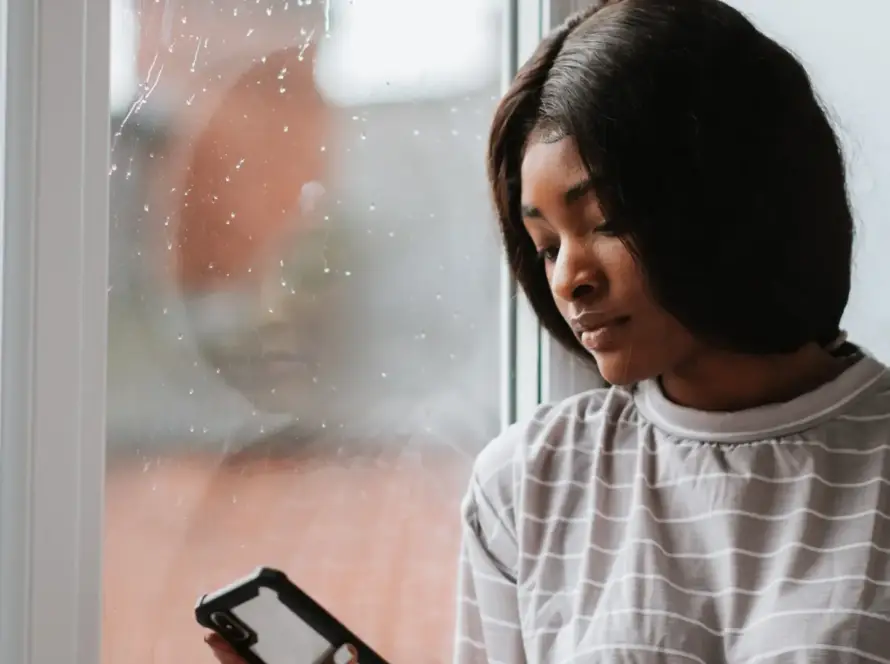
Welcome, my fellow lovebirds! Today, we’re diving into something that doesn’t get nearly enough hype: emotional safety.
It’s basically the magic ingredient to a relationship that’s as solid as your favorite pair of leggings.
Forget candlelit dinners, forget dramatic “I love you” speeches.
Emotional safety is where the real romance happens.
And no, it’s not boring.
In fact, it’s hotter than that steamy text from your partner during lunch break.
What Exactly Is Emotional Safety?
Let’s break it down.
Emotional safety means you can be you: messy, weird, and wonderfully flawed, without fear of judgment.
It’s being able to ugly-cry after watching The Notebook for the 17th time, and your partner just hands you a tissue instead of running for the hills.
It’s when you can talk about your fears, dreams, and even the embarrassing middle school story you vowed never to tell.
Emotional safety is the comfort of knowing your partner won’t think less of you for having feelings, even if those feelings sometimes include eating an entire pizza solo. (Yes, including the crust.)
Secret Signs Your Relationship Lacks Emotional Safety
You might be thinking, “Do we have emotional safety, or do we just bond over shared hatred of putting away laundry?”
Well, let’s dig deeper.
Emotional safety isn’t just about feeling warm and fuzzy all the time.
It’s about consistently feeling secure enough to be your true, unfiltered self, without fear of judgment or rejection.
So, what are the secret signs that emotional safety is slipping faster than your partner’s promise to take out the trash?
Let’s spill the tea.
You’re Afraid to Bring Up the Tough Stuff
If you’re terrified of mentioning anything that might possibly annoy or upset your partner, that’s a major red flag.
Like, you rehearse the conversation in your head 15 times before bringing it up, and even then, you back out.
Maybe it’s that comment they made three weeks ago that’s been bothering you, or maybe you’re annoyed that they keep “forgetting” to do something important (like, I don’t know, pay the internet bill).
Either way, emotional safety means you should be able to talk about it without worrying you’re about to kickstart World War III.
You Bottle Up Your Feelings Until They Explode
Emotional safety isn’t about being calm and Zen 24/7.
It’s about feeling safe enough to express your feelings when they come up, whether that’s frustration, sadness, or just needing to vent.
If you find yourself bottling everything up like you’re auditioning for a human pressure cooker, that’s a sign emotional safety is on the fritz.
And when those feelings do eventually come out (because they will), it’s not pretty.
One moment you’re talking about what to have for dinner, and the next, you’re yelling about that thing they said in 2018.
You Walk on Eggshells
Are you constantly tiptoeing around certain topics?
Like, you avoid talking about finances, future plans, or even their weird relationship with their mom because you know it’s going to lead to a fight or awkwardness.
When you have emotional safety, you don’t have to worry about every conversation turning into a minefield.
Walking on eggshells means there’s a lack of trust, and emotional safety thrives on trust.
If your conversations feel more like dodging bullets than just chatting, it’s time to reevaluate.
You Hold Back Parts of Yourself
If you feel like you can’t be your whole self around your partner, whether that’s cracking your weird jokes, being vulnerable, or sharing your true thoughts, then emotional safety might be missing.
It’s not just about having deep, meaningful conversations.
Emotional safety also means being able to be your quirky, goofy, awkward self without fear that your partner is going to roll their eyes or make you feel small.
If you’re holding back parts of yourself, you’re missing out on a huge part of emotional connection.
Sarcasm Has Replaced Real Talk
We love a little humor, but if every serious conversation is met with sarcasm or passive-aggressive jokes, that’s a problem.
Emotional safety means taking each other’s feelings seriously.
If every time you try to bring up something important, your partner hits you with a sarcastic comment or deflects with humor, it’s a sign they’re not creating a space for real, open communication.
Sarcasm is great for banter, not so much for building emotional safety.
You Feel Like Your Feelings Are Being Dismissed
One of the biggest signs that emotional safety is lacking?
When you voice your feelings, and your partner either brushes them off, minimizes them, or tells you you’re overreacting.
Emotional safety means that your emotions, whether big or small, are validated and heard.
If you constantly feel like your partner is dismissing what you’re feeling, it can make you question whether it’s even worth speaking up in the future.
Spoiler alert: it always is.
Bonus Sign: You Start Overthinking EVERYTHING
Last but not least, if you’re second-guessing yourself all the time, that’s another sign emotional safety is slipping away.
You know the drill: “Should I say this? Is now a good time? What if they think I’m overreacting?”
When you feel emotionally safe, you don’t waste mental energy overanalyzing every word or action.
You trust that your partner will understand where you’re coming from, and you can speak your mind freely.
If you’re constantly overthinking your every move, that’s a sign you don’t feel emotionally secure.

How to Build Emotional Safety Without Getting Too Sappy
So, how do you go about building emotional safety without turning your relationship into a cheesy rom-com?
Don’t worry, it’s totally doable.
No need to start journaling your feelings together (unless you’re into that).
You can keep things light while deepening that emotional connection.
Ready?
Let’s get into it.
Listen Like You Mean It
I know, I know, listening sounds basic, but hear me out (pun intended).
Actually listening is the foundation of emotional safety.
And I don’t just mean nodding your head while mentally planning tomorrow’s to-do list.
I mean really listening.
Ask your partner how their day was and then, this is key, wait for the answer without interrupting or offering solutions.
Emotional safety isn’t about fixing things. It’s about holding space for each other’s feelings.
Bonus points if you remember small details from their rant about the annoying coworker.
Trust me, they’ll appreciate it.
Share the Weird Stuff
Want to build emotional safety?
Don’t just share the deep, meaningful stuff, share the weird, random, and awkward parts of yourself.
You know, like your strange habit of singing in the shower or your irrational fear of ladybugs.
Vulnerability isn’t just about serious talks.
It’s about letting your partner see all sides of you, even the quirky ones.
When you let your guard down, it invites your partner to do the same.
Suddenly, emotional safety is being built without even trying, no tissues or heartfelt speeches needed.
Laugh at Yourself
Nothing creates emotional safety faster than the ability to laugh at yourself.
Life is messy, and so are relationships.
Emotional safety is knowing you can mess up (because we all do) and still be loved.
So the next time you spill coffee on your partner’s favorite sweater or burn dinner, make a joke out of it.
Show your partner that it’s okay to be imperfect.
A sense of humor can turn tense moments into bonding experiences, making your relationship feel safer without all the serious vibes.
Do a ‘Feelings Check-In’, But Keep It Casual
You don’t need to schedule a formal “relationship review” (unless that’s your thing).
But checking in with each other about how you’re both feeling is crucial for emotional safety.
It doesn’t have to be deep.
Try casually dropping in a “Hey, how are we doing?” during a Netflix binge or while you’re out for a walk.
Keeping it light makes it easier to talk about the bigger stuff when it comes up.
Plus, it shows your partner that you care about their emotional experience in the relationship without making it a big deal.
Own Your Mistakes, Quickly and Honestly
Look, we all screw up sometimes.
Maybe you forgot something important, or you said something in the heat of the moment that you didn’t mean.
The key to building emotional safety is owning up to it, fast.
Don’t wait for your partner to bring it up or, worse, silently stew about it.
Apologizing quickly and sincerely shows that you respect their feelings.
It also makes it clear that your relationship is a safe space for mistakes, as long as you’re both willing to work through them.
Stop Trying to ‘Win’ Arguments
Here’s a pro tip: emotional safety isn’t about being right all the time.
It’s about connection over being correct.
If you find yourself treating every disagreement like a competition, take a step back.
Ask yourself, “Am I trying to win, or am I trying to understand?”
Instead of going for the knockout punch, aim for empathy.
It’s okay to disagree.
What matters is that your partner feels heard and respected, even if you’re on different pages.
Emotional safety means knowing that the relationship is more important than being right.
Create Rituals for Emotional Safety
This might sound a little out there, but creating small rituals in your relationship can do wonders for emotional safety.
It doesn’t have to be anything elaborate.
Maybe it’s a quick “I love you” before bed or a five-minute chat over coffee every morning.
These little rituals build consistency and security, reminding both of you that no matter what, you’ve got each other’s back.
It’s the emotional version of having a favorite comfy hoodie: reliable, warm, and always there when you need it.
Validate, Validate, Validate
Even if you don’t fully understand why your partner is upset, you can still validate their feelings.
Sometimes emotional safety is as simple as saying, “I get why you’re feeling this way, and it’s okay.”
You don’t have to solve the problem, you just have to be there.
Validation is emotional safety’s BFF.
When your partner feels heard and understood, they’re more likely to open up, and suddenly, you’ve got a relationship where both of you can feel safe being yourselves.
Give Space When Needed
Emotional safety isn’t just about being all up in each other’s business 24/7.
Sometimes, it’s about knowing when to give your partner space to process their feelings.
If your partner needs a bit of alone time to cool off or think, respect that.
Emotional safety is about trusting that the space is temporary and that you’ll come back together stronger afterward.
It’s not abandonment. It’s understanding that you don’t need to fix everything in the moment.
Building emotional safety doesn’t require a relationship overhaul or endless heart-to-hearts.
It’s the small things: listening, laughing, validating, that build a fortress of trust and security.
And guess what?
You can do it without turning into a giant ball of feelings.
Emotional safety might not look as flashy as a romantic getaway, but it’s the glue that holds everything together when life gets messy.
So go on, build that emotional fortress, and maybe add some pizza and Netflix inside for good measure.

The Awkward but Totally Worth It: Asking for Emotional Safety
Alright, let’s be real: having the “emotional safety” talk with your partner might feel as awkward as trying to dance at a wedding after a few too many drinks.
But here’s the thing: it’s totally worth it!
And once you get over the initial cringe, it’s going to do wonders for your relationship.
The good news?
You don’t need to be a relationship expert or bust out a PowerPoint presentation to get the point across.
Keep it casual, keep it light, and, most importantly, keep it real.
Start small.
You don’t have to sit your partner down for a dramatic, heart-to-heart right after dinner (although you could, if that’s your style).
You can weave it into a regular conversation.
Maybe something like, “Hey, I’ve been thinking: how do you feel about us making sure we both feel safe to talk about anything, even the tough stuff?”
Keep it simple, but clear.
You’re not accusing, you’re inviting.
You’re opening the door to deeper connection without slamming them with a heavy emotional lecture.
It might feel awkward at first, but you’ll be surprised at how quickly things shift once the conversation starts rolling.
You’re essentially saying, “I value you, I value us, and I want to make sure we both feel good in this relationship.”
And honestly, who wouldn’t want that?
Once the door is open, you might be shocked at how much your partner has been holding back too.
Don’t forget, asking for emotional safety isn’t a one-time conversation. It’s a continuous commitment.
The more you talk about it, the more natural it becomes.
And, in the end, it brings you closer together, making those slightly awkward moments so worth it!
Conclusion: Emotional Safety Is the New Sexy
Emotional safety is the foundation of a strong, lasting relationship.
It’s what allows you to be open, honest, and truly you with your partner.
But like anything worth having, it takes effort to build and maintain.
The good news?
You don’t have to do it alone, and you don’t have to make it feel like hard work!
Click here to get the Better Topics Card Game for Couples!
Enter the Better Topics Card Game for Couples, the perfect tool to improve communication, bonding, and keep the spark alive.
This playful, interactive game helps you and your partner tackle meaningful conversations while keeping things fun.
It’s designed to get you talking about the stuff that matters, whether it’s addressing the little things or diving into deeper topics, all while staying connected and playful.
So, if you’re ready to level up your communication and strengthen your emotional safety, grab the Better Topics Card Game and start playing with your significant other.
It’s a fun, easy way to bond, improve communication, and keep that emotional safety fortress standing strong!










